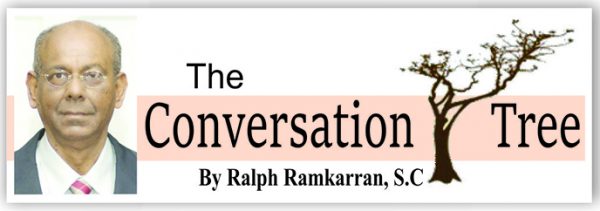

After protesting against the ICJ’s decision, President Nicolas Maduro issued Decree No. 4.415 dated January 7, 2021, creating a “Strategic Area of National Development called ‘Territory for the Development of the Atlantic facade. ‘”The territory includes the Atlantic facade in Orinoco. Delta up to 200 nautical miles, but excluding maritime space of other provinces. Guyana’s maritime space is not excluded because the maritime space claimed by Venezuela includes that covered by Decree No. 3.732 of December 28, 2018, and previous rulings claiming sovereignty over maritime space to which Guyana is entitled to him. This space in Guyana’s “Atlantic facade,” including its huge petroleum resources, is now part of Venezuela’s “Atlantic Frontier Development Territory” and has been designated a “strategic area for national development.”
The Decree provides for the creation of a Single Authority to manage all aspects of administration and development of the “strategic area.” A Board of Directors will include representatives from seven vice presidencies, the military and the ministry of foreign affairs. The Board of Directors administers the “strategic area” and manages its income, tax incentives, import facilities and customs. Operating regulations for the Board of Directors will be prepared and published within 90 days.
On this occasion, the Venezuelan government has gone further than at any time in the past, in trampling on Guyana’s sovereignty and provocatively increasing tension. It has incorporated Guyana’s maritime space, where exploration and extraction of petroleum products continues. It can only be considered international banditry and exposes Venezuela and Maduro’s empty claims of wanting to settle the dispute peacefully so much hogwash. Venezuela has clearly incorporated our territory into its “strategic area” and is preparing to make laws and regulations to control its plunder.
This reveals Venezuela’s statements of peaceful intentions to have always been fig leaves in its campaign to take over Guyana’s territory. His intentions are hostile, obvious and warlike. The regular and threatening presence of its warships in the Guyana seas, not to mention the seizure of ships, as well as the invasion of half Guyana from Ankoko in 1966, are not the actions of a friend. Guyana has historically tried its best to maintain good and friendly relations with Venezuela, in the face of decades of provocation. But all in vain. Venezuela for the past two years has been showing its true colors, if there were any previous doubts. He has now revealed his aggressive designs for the world to see.
Guyana must be prepared for the worse. An analysis of UN-sponsored negotiations in November 2018, and the referral of the debate to the ICJ by the UN Secretary-General, led to the earlier Awards that incorporated Guyana’s maritime space in the Atlantic as part of Venezuela. Now the ICJ’s ruling in favor of Guyana on jurisdiction has caused Venezuela to dramatically extend its jurisdiction over our maritime space while wildly violating international law. It is clear that the Venezuelan establishment is not yet finished and that a ruling of the ICJ in favor of Guyana will exacerbate Venezuela’s imperialistic greed and craving for our land, sea space and resources. There is nothing this will mean.
The only obstacle to more aggressive Venezuela activity is international opinion. Venezuela understands that the international community will not consider its physical capture of Guyana territory ruled by an Arbitration Tribunal in 1899 which Venezuela accepted for six decades. No one can foresee what fruitless acts Venezuela sums up in preparation for a probable ruling by the ICJ against its assertion that the 1899 Arbitration Award was void. So Guyana must intensify its international campaign. Guyana needs to expand its border section several times in order to expand the promotion of Guyana’s cause to the furthest reaches of Guyana and the world. The combination of the weakness of the Venezuela case and its unfavorable international views has so far protected Guyana from more serious Venezuela indignation. As the situation moves to its inevitable denial, Guyana must defend itself by dramatically intensifying its efforts.
These efforts must take into account the intensity of Venezuela’s promotion of its alleged right to the Essequibo. On a private visit to Venezuela in the 2000s, I stopped at a roadside stall for refreshments during a long trip. The seller was surprised we couldn’t speak Spanish. He understood that Georgetown, where I lived, was not far from Essequibo, where the descendants of Venezuelans lived and spoke Spanish!